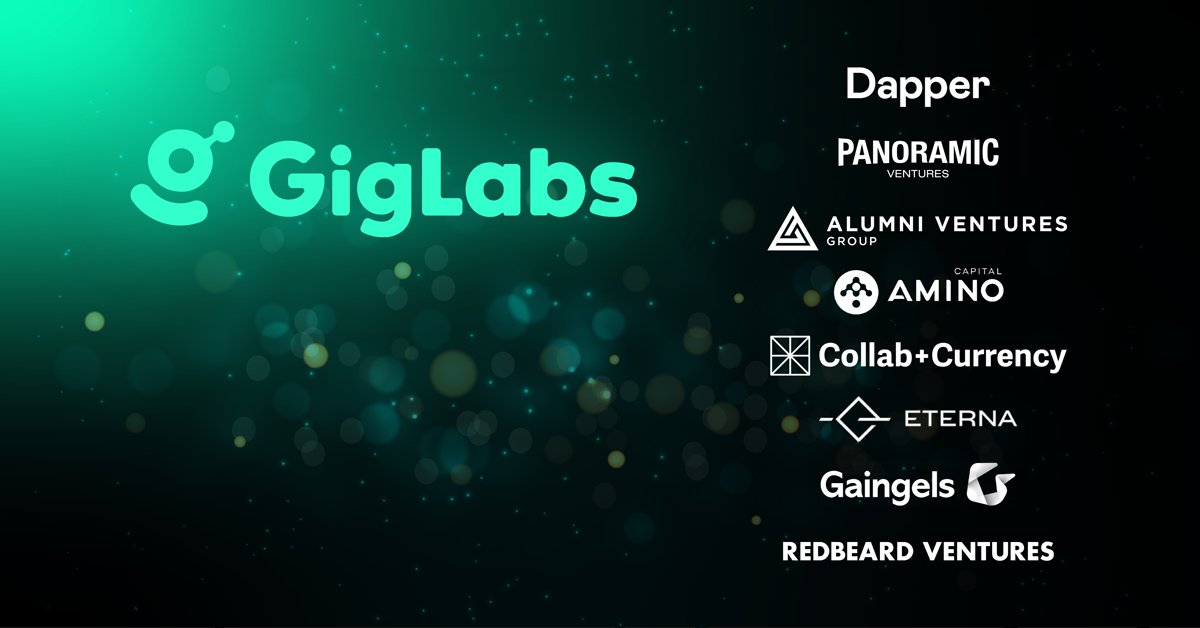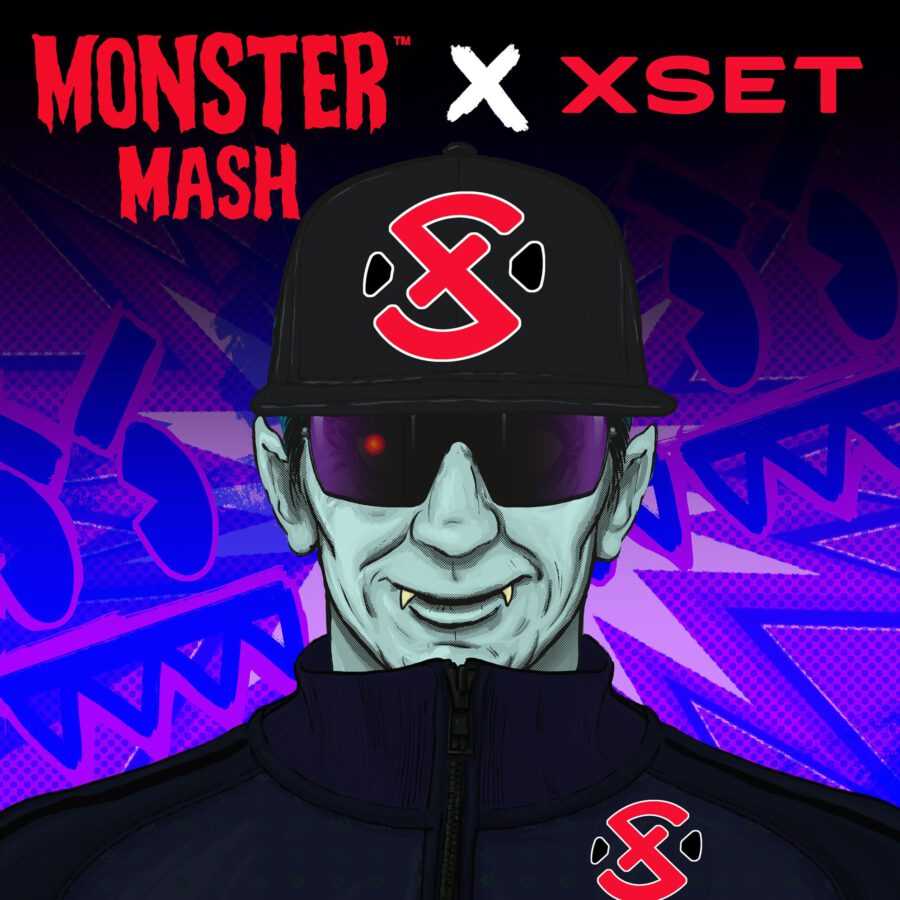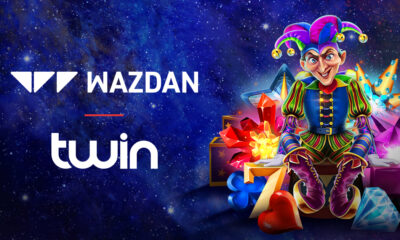Opinion & Featured
MALTA GAMBLES EVERYTHING ON ‘LEAKY’ VACCINE, BANS MOST OF WORLD

Malta, the global iGaming hub, has taken the unprecedented step of banning most of the world, only allowing those with current Maltese, UK, or EU vaccine certificates to enter or leave the country.
Despite an ongoing international advertising campaign promising tourists a warm welcome, and proclamations that the country is open for business, the tiny republic has become the first EU nation to ban all non-vaccinated people from either entering or leaving. Making matters worse, the Maltese authorities say they will only recognise vaccine certificates issued by Malta, the UK, or EU countries – effectively banning most of the world’s population.
This obviously has major implications for the country’s gaming and tech industry, throwing the viability of planned expos and conferences into doubt, making business travel difficult, creating a headache for expat workers, and making the recently FATF-greylisted country even less attractive to foreign investment.
Why has Malta taken this extreme step?
Although Malta itself has vaccinated around 80% of its own population, the government has taken the action following a spike in positive test results over the past week. This, of course, brings up a fairly obvious issue – but one that has so far been ignored by Maltese media and politicians. That is that everyone visiting the country had to produce negative COVID tests (except for Brits, who already had to produce a valid vaccination certificate). So, everyone entering had tested negative for COVID. Still, the current outbreak is being blamed firmly on those foreigners.
Of course, this strongly suggests that either the tests themselves are highly inaccurate, or that the vaccinated local population is actually spreading the virus (or a combination of the two). But, because very few of the vaccinated locals are developing symptoms, they are not getting tested – hence the majority of people getting tests are unvaccinated, possibly leading to the erroneous conclusion that it is the unvaccinated foreigners who are spreading the virus.
The truth could be very different. Why? Because of a combination of several factors which are conveniently swept under the rug by politicians and health authorities who have gambled everything on the current vaccination campaign. And, let’s be clear here, this isn’t just a Maltese issue. It’s happening globally. But, because Malta is so small, and its policies are so extreme, it illustrates the ‘Catch-22’ situation we find ourselves in very nicely.
But, before we look at exactly why the vaccination campaign is not likely to deliver the hoped for outcome, and is probably making a bad situation worse, let’s remind ourselves of something, and keep it in the back of our minds. That is that, by the time COVID-19 was brought to the world’s attention through the Wuhan crisis (which had more than a touch of the theatrical to it), the virus was already established around the world. This means that there was never a realistic opportunity to contain it. Indeed, the initial strain spread without detection precisely because it was so innocuous. All things considered, had the Wuhan incident not struck fear into the world, it’s unlikely COVID would have ever prompted the lockdowns and hysterical clamour for vaccines that we’ve seen.
Why you need to understand what a leaky vaccine is
Which brings us on to the vaccine issue. Quite apart from the fact that none of the vaccines being used have completed long-term trials (by virtue of the fact they haven’t existed long enough), and some are using very controversial mRNA technology, there is a very big difference between these vaccines and those we have become accustomed to, like those for measles, mumps, rubella etc.
Indeed, this is perhaps the most important thing to understand, the vaccines that were developed (of which there are over a dozen now in use globally), despite using several different technologies, including controversial mRNA tech, are all ‘leaky’ (also referred to as ‘imperfect’ or ‘non-sterilising’). This means they don’t stop people becoming infected or transmitting the virus, but rather reduce symptoms (and, some say, viral load and shedding) in the vaccinated. Furthermore, all the COVID vaccines in use are highly targeted, for example to the much discussed spike proteins. By contrast, ‘non-leaky’ or ‘perfect’ vaccines, like those we’ve all gotten used to taking for years as children, prevent both infection and transmission, and give our immune system exposure to the full makeup of the virus.
On the one hand, developing leaky, highly targeted vaccines was very quick, enabling several pharmaceutical companies to roll out products in under a year – no mean achievement. But, on the other hand it means the vaccines we are now using might well be making the big picture much worse, and by deploying them we may have brought an illusion of short-term benefit at the expense of opening Pandora’s Box in the long-term.

A warning from chickens
At this point, it’s probably helpful to consider what has happened with Marek’s disease in the poultry industry. Marek’s spreads rapidly and turns bird’s brains to mush, and decades ago was threatening to destroy the global poultry industry. So, they developed vaccines. Leaky vaccines. Most scientists assumed the vaccines would lessen the severity of the virus and be better than nothing, so they started a mass-vaccination campaign.
At first, it seemed to work. Indeed, the vaccinated chickens survived for months longer, and seemed okay. However, something unexpected happened. Any unvaccinated birds exposed to vaccinated birds started dying extremely quickly. As it turns out, the vaccinated birds were found to be shedding up to 10,000x more virus than unvaccinated birds.
You see, normally, as a virus evolves to become more brutal, it kills its host quicker, meaning it has less chance to spread, and usually dies out. It’s for this reason that Ebola, as terrifying as it is, has never gone on a world-wide rampage. But, the vaccinated chickens had essentially become asymptomatic carriers, in which the virus could continue to live, mutate, and shed.
So, the poultry industry unwittingly started off a process that would ensure Marek’s disease only got worse. Fortunately, for the industry, chickens tend to live on farms, in cages. In a state of permanent, total lockdown. So, it’s relatively easy to keep on top of a 100% rolling vaccination campaign, and keep ahead of the curve so-to-speak. Plus, chickens only need to live for a few months.
However, humans aren’t chickens. Of course, if we completely locked down the entire world – every last man, woman, and child, and rolled out a total, continuous, rolling vaccination for the very latest strains, it might, theoretically at least, be possible to ‘pull a poultry industry’ and keep on top of COVID. But, in reality, this is far from possible.
For, in a world where there are already a multitude of COVID variants, all evolving away in hugely infected populations, and where people need to work, socialise, and travel, any one single vaccinated population (say, for example, Malta), will inevitably end up seeing the introduction of a COVID variant which is so far removed from the one the population was vaccinated against, that the population will be akin to the unvaccinated chickens.
So, by rolling out a mass vaccination campaign, in the middle of a hot global pandemic, using leaky vaccines, we may well have condemned ourselves to a never ending cycle of increasingly dramatic outbreaks of increasingly brutal strains – and all the resulting lockdowns and booster campaigns, that will inevitably fall ever further behind the curve.
Want to find out more about the possible dangers of following a mass infection prevention and mass vaccination campaign with leaky vaccines, during the midst of a pandemic? Check out what Geert Vanden Bossche DVM, PhD (University of Ghent, University of Hohenheim, GSK Biologicals, Novartis Vaccines, Solvay Biologicals, Bill & Melinda Gates Foundation’s Global Health Discovery, Global Alliance for Vaccines & Immunization, German Center for Infection Research) has to say at his official website.
For more about how vaccination made Marek’s disease worse in chickens, check out this PBS News Hour article from 2015.

What happens next? Is there a solution?
So, here we are, in July 2021, and Malta has become the first European to ban anyone except those vaccinated in Malta, the UK, and EU, in a desperate attempt to halt the latest perceived outbreak. Will it work? Probably not – for while Malta is literally an island, it is still at the mercy of events elsewhere. Like the UK, Israel, and other countries that have enthusiastically embraced the vaccines, they may well buy some time, keeping symptoms down and hospital admissions lower for now, giving politicians and medical authorities some opportunities to pat themselves on their backs and claim they are winning.
But, whereas early 2020, the world found itself widely infected with a relatively mild virus which the vast majority of people fully recovered from without medical assistance, in July 2021, we are in a much worse position, with multiple far more virulent variants, and billions of vaccinated people walking around as potential asymptomatic carriers, constantly spreading and mixing strains. And, at some point, with the already noted rapid waning of vaccine efficacy, and the constant rise of more transmissible and brutal variants, all the vaccinated will find themselves vulnerable once again.
At that point, the jury is out on whether those who never got vaccinated will be in a better position than those who did get vaccinated. There are those who argue that, because the vaccines are so narrowly targeted, once they encounter a virus which is of sufficient difference, they will elicit an immune response, but it will be ‘sub-optimal.’ In a nutshell, your body will think it has the answer, and deploy its ‘acquired immunity’ (given by the vaccine), instead of/before its innate immunity (the generic, ‘gatekeeper’ immune system you have from birth). This means that those who either never had the vaccine, but have a healthy innate immune system, or those who were naturally infected by the virus and recovered, may well find themselves in a much better position to fight off future variants.
Of course, there are those putting their faith in boosters for new variants, but anyone following the rise of new strains will realise this is fanciful thinking. The emergence of new variants is clearly accelerating (likely driven by the mass vaccination campaign itself), so any attempts to keep up with boosters will inevitably fall further and further behind. And, that’s not even taking into account the unworkable mess international travel would become if you had to ensure you had the correct boosters for the specific variants that were currently dominant in the place you were travelling to (something that will always be rapidly changing).
So, looking back, it would probably have been far better never to have locked down or started a mass vaccination campaign at all. It would have been bad. People would have gotten sick and died. But, in absence of the extreme evolutionary pressure that such measures placed on the virus, it may well have naturally attenuated, and gradually faded into the background, becoming no more troublesome than a bad cold.
While no one knows for sure if the COVID-19 virus was man-made and deliberately released, man-made and accidentally released, or an entirely natural virus that crossed the species barrier somehow, anyone could be forgiven for thinking this entire sequence of events was entirely predictable… and that some group, somewhere, might be sitting back and watching their plan unfold.
Opinion & Featured
GIGLABS RAISES $4.5 MILLION TO HELP BRANDS LAUNCH NFTs

Blockchain company GigLabs has announced a US$4.5 million seed round led by Dapper Labs and Panoramic Ventures.
Other investors participating in the round include Collab+Currency, Red Beard Ventures, Eterna Capital, Alumni Venture Group, Gaingels, and Amino Capital. The caliber and variety of investors participating in this round demonstrates broad support for GigLabs to be the leading provider of infrastructure for brands, creators and collectors to build memorable experiences through NFTs.
“At GigLabs, we firmly believe that every brand will have an NFT strategy in the future,” said Douglas Dimola, CEO and co-founder of GigLabs. “This funding enables us to expand the talent of our team to continue expanding our offerings to meet current and future demand, while also working with the best and brightest partners to continue to push this new innovation forward.”
NFTs have increased in popularity with the market reaching billions in trading and sales volume. As NFTs continue to rapidly see mainstream adoption, with major sports leagues, media outlets and prestige auction houses participating in projects, brands are increasingly seeking to get involved—but they need reliable partners to navigate the significant technical complexities when integrating NFT projects into enterprise level organizations.
GigLabs’ technology is championed by some of the biggest names in entertainment, giving customers access to emergent Web3 innovations. GigLabs’ solutions enable brands and creators to launch new NFT projects with customizable branded storefronts and marketplaces, as well as metaverse experiences for their communities. In addition, GigLabs has pioneered transferring NFTs to fans while at live events, all through a QR code.
GigLabs’ platform allows enterprise brands to build lasting relationships with consumers and create customized and personalized experiences through NFTs that live on the Flow blockchain. Major brand partners supported by the GigLabs platform include CNN, Turner Sports, Bleacher Report, Speedway Motorsports’ RaceDay NFT—the first-ever NASCAR-related NFT, University of Miami’s Canes Vault, Athletes Unlimited and others. This funding round will allow the company to build out its team and scale to accelerate customer growth.
“GigLabs continues to impress through the team’s ability to develop the technology solutions needed for any brand to build a powerful NFT experience,” said Roham Gharegozlou, CEO of Dapper Labs. “It’s awesome to see the world’s leading brands building on Flow and supercharging their connection to consumers.”
“Sometimes the magic is making it simple to do something complex. GigLabs takes a transformative technology and makes it accessible to companies, organizations and brands of all sizes,” said Paul Judge, Managing Partner of Panoramic Ventures. “We believe in the power of NFTs to combine content, culture, and community and we’re enthusiastic to back GigLabs on this journey.”
GigLabs has built multiple solutions to not only bring brands into the world of NFTs but also to provide onramps into the much broader metaverse. These include NFT Bridge, which is the company’s whitelabeled solution for brands and creators to launch customizable NFT marketplaces directly on their own websites.
The platform also includes a solution that allows for frictionless claiming of NFTs via a QR code while attending live events, a novel way to blend fandom in the physical and virtual worlds. GigLabs has also built RareRooms, a 3D/VR enabled metaverse that allows collectors to curate and showcase their NFTs as well as allow brands to have amazing virtual storefronts and customizable spaces that allow their fans to truly experience their NFTs. Nearly 10,000 RareRooms have been created to display unique, curated sets of NFTs by collectors.
Esports & Video Games
XSET AND MONSTER MASH CREEP IT REAL WITH NEW NFT COLLAB

US-based gaming lifestyle brand XSET has partnered with Monster Mash for a Halloween NFT collaboration.
The partnership will see several XSET players feature as creatures on Monster Mash, which is home to 10,000 randomly generated monsters drawn by artist Vance Kelly. Each of the XSET branded digital ghouls is made up of over 400 traits and will haunt the Ethereum blockchain for eternity.
“Monster Mash has been making a lot of noise in the NFT space, who doesn’t like Monsters right?” said Greg Selkoe, co-founder and CEO of XSET. “So we decided to make this XSET’s first NFT collab. We know that the fans of both brands are going to be excited to collect these super-rare pieces.”
“I think it’s really exciting to be working with XSET to add another integral layer to the Monster Mash brand with the inclusion of XSET’s players as some of the Monsters themselves. It widens our Monster universe and brings it into today’s cultural world,” says Hugo Stevenson, founder and CEO of Road Crates, Inc.
Owners of Monster NFTs are able to access the metaverse members-only world of MM Express, featuring a creative community platform for building new monsters for future air drops, live, in-person events, killer merchandise, and much more. Each unique NFT is stored as ERC-721 tokens on the Ethereum Blockchain and hosted on IPFS, and can be purchased for 0.08 ETH + gas fees.
According to XSET, the branded monster NFTs are just the first of a number of upcoming initiatives, with more details to be announced in the near future.
Staying with XSET, earlier this month, the brand announced the beta launch of StreamJ, a new digital rights management (DRM) and license-free music platform specifically designed for gaming streamers and creators.
Esports & Video Games
SIPHER RAISES $6.8M TO ACCELERATE DEVELOPMENT OF “WORLD OF SIPHERIA”

Sipher, a gaming studio that pioneers blockchain technology, has announced the closure of its US$6.8 million seed round, co-led by Arrington Capital, Hashed and Konvoy Ventures.
The funding will be used to accelerate the development of its upcoming World of Sipheria game and continue to build the tools needed to create compelling, fun and engaging gaming experiences based on blockchain technology.
In addition to the leading backers, Sipher further attracted the participation of backers including Defiance Capital, Signum Capital, Dragonfly Capital, CMT Digital, BITKRAFT Ventures, Delphi Digital, Alameda Research, Fenbushi Capital, Sfermion, Hyperchain, GBV, Kyber Network, Coin98 Ventures, YGG and Merit Circle. The company also welcomed notable angels including Holly Liu (Kabam), Kun Gao (Crunchy Roll) and Alex Svanevik (Nansen.ai).
Founded by prominent Vietnamese CEO Nguyen Trung Tin, who counts accolades such as inclusion on Forbes’ prestigious 30-Under-30 list upon an enviable CV, and has set Sipher on a mission to unify state of the art blockchain tech, artwork, storytelling, multiplayer gaming with decentralized financial technologies.
The company’s vision is to create an expansive world that will attract and keep the player base engaged for years to come as new worlds, characters and factions are introduced. Sipher is fostering an ecosystem where people can play for fun while also being rewarded for their time spent in-game. By leveraging blockchain technology, Sipher is bringing economic freedom to gamers and providing the community with ownership of in-game assets which directly contributes to the growth and success of the gaming industry.
“First and foremost, games are meant to be fun,” Tin says. “They are meant to be social. They are meant to invigorate, excite and bring people together for a common purpose, to enjoy time spent with each other. This is true for the most classic and for the most futurist of games. This is what makes games the most powerful medium for sharing and discovering amazing moments together.”
Backer Jason Chapman of Konvoy Ventures agrees, saying: “Gaming is the new social square and is driving the development of global culture. Tin and the whole Sipher team are helping pioneer a new wave within this social arena, one where players are rewarded for their time, performance, and creativity. Gaming has always been home to creators, thinkers, and competitors and it is time that we see games show their communities financial loyalty. There are more than 3 billion people playing games across the globe and less than 0.1% of gamers are experiencing direct profit sharing. Sipher is renegotiating what players should expect from their games and is here to bring joy to their players both through entertainment and financial freedom. The whole Konvoy team is thrilled to be in Sipher’s corner as we build this new era of games.”
This community spirit is echoed in the huge uptake of Sipher’s Discord community, which already numbers over 60,000, and in the enthusiastic response to its early character launches. Siphers’s first playable NFT character, Sipherian Surge, was a drop of 10,000 genesis Sipher Inu NFTs were bought in less than 15 minutes and are now available for trading and secondary purchase on OpenSea.
Sipher’s next priority is launching the playable MVP of the first gaming experience in the World of Sipheria. The experience will introduce a cooperative dungeon game mode that will onboard new waves of native and non-native blockchain users through beautiful design and graphics, compelling gameplay, expansive world lore hidden with secrets to be discovered and the ability to take part in the game economy. It is also preparing to release its second collection called the Sipherian Flash, a drop of 10,000 limited Sipher Nekos as playable characters.
Excited by the prospects Sipher offers, backer Michael Arrington of Arrington Capital stated: “We believe that the world of Sipheria will be one of the most exciting and adventurous experiences inside the Metaverse. Sipher builds on innovative P2E economics while leveraging both the spirit of crypto culture and mainstream gaming. The art blends a futuristic world of sci-fi and captivating animals, it is internet-native and inspiring, a game that everyone can fall in love with. We believe that Metaverse gaming will unlock a new economic frontier where users can reap the rewards of their time and creativity, and we fundamentally believe in the passion and energy behind Tin and his team. We believe that Sipher is positioned to capture and captivate users across all regions of the world. We are excited to back Sipher and join the world of Sipheria.”
Endorsing these sentiments and stating his faith in the Sipher team and its leadership, co-investor Kyuntae Ethan Kim, Managing Partner of Hashed, who said: “Since 2018, Hashed has been actively investing in blockchain games and metaverse with our strong thesis on virtual worlds. We think the virtual world economy will be much bigger than that of the real world thanks to the blockchain infrastructure providing a key backbone for digital assets. Tin and his team have demonstrated huge potential to become the next major blockchain gaming studio. They not only understand the crypto/blockchain ecosystem, but also have strong ability to implement great quality games. They know the beauty of combining NFT and gaming and have plans to connect esports in their game eventually. I am so excited to co-lead this round and can’t wait to see Sipher’s community grow rapidly.”
AYO.NEWS says:
For years, the dreams of metaverse gaming have been held back by technological limitations and the hesitancy of the mainstream gaming community, but with blockchain now mature and more widely accepted, and investment flowing into the sector, a new revolution really is beginning.
Opinion & Featured
ONCHAIN STUDIOS RAISES $7.5M TO DEVELOP NEW NFT PLATFORM CRYPTOYS

OnChain Studios has announced a US$7.5M seed round led by Andreessen Horowitz with participation from Draper & Associates, CoinFund, Sound Ventures, Dapper Labs, Collab + Currency, WndrCo, and other notable investors.
The NFT studio’s flagship project, Cryptoys, will be launching soon on Flow, and will offer the first-ever fully interactive NFT (non-fungible token) digital toys. In addition to being able to buy, sell, and collect Cryptoys, consumers will also be able to play with them inside an immersive world built on the blockchain. To add depth, each Cryptoy can gain more capabilities as it’s played with more often, continually unlocking new experiences.
Will Weinraub, CEO and Co-Founder of OnChain Studios, explained: “What started off as a side project for my daughter has turned into this amazing company, and I feel blessed to be building it with such an incredible team. The rise of NFTs and blockchain allows us to create new revolutionary experiences that have never been done before. With Cryptoys we are building a rich, expansive world that combines elements of entertainment, gaming, and toys into an experience customers can truly own and take with them forever.”
Arianna Simpson, General Partner, Andreessen Horowitz, added: “Cryptoys is a perfect example of the compelling new NFT gaming and entertainment experiences that are now possible with the advent of web3 — a fully-interactive 3D universe with custom toys for each participant. We’re thrilled to partner with the world-class team at OnChain Studios to bring Cryptoys to life and introduce the joys of NFT gaming to mainstream audiences.”
The first series of drops will consist of an original line of characters, with the Cryptoys universe then expanding from there. The company says “a number of well-known brands” are also looking into ways to leverage the full-stack Cryptoys platform to turn their IP into NFT-based interactive digital toys.
In addition to NFT toys, OnChain Studios is also building an open world experience called The Cryptoyverse, which will allow users to play with their toys in a digital environment, with P2E (play-to-earn) mechanics.
The Cryptoys platform is being built on Flow, the fast, easy-to-use, open blockchain with the biggest and fastest growing NFT marketplace.
Opinion & Featured
AWARD POOL SEES “EXPLOSIVE” GROWTH: 115K NEW USERS & 2M VIEWS IN FIRST 2 WEEKS

Award Pool, the integrated platform that empowers brands, influencers and content creators to power up, grow, and engage communities with gamified play and NFT rewards, has reported “explosive” growth with 115,000 new users signing up and two million page views since its beta launch on 30 September, 2021.
According to the platform, this growth highlights the early success and future potential of the platform and its ability to help brands and content creators gamify campaigns with social and in-game challenges catered to their communities.
In addition, Award Pool will be launching The So.co Challenge, Music Reimagined! as the result of a previously announced partnership with So.co, a curated, image-based media platform that celebrates music, the related lifestyle, and associated cultural content. Together, Award Pool and So.co will promote a new opportunity for connecting musicians with fans by having them participate in challenges to earn points and NFT rewards, which will redefine the best strategies for audience growth and activation.
Reuven Cohen, Founder and CEO of Award Pool, commented:“We are excited to see such opportunity and growth with the Award Pool beta and look forward to offering such opportunities to our partners and clients.”
Award Pool is primarily designed to appeal to digital natives, particularly Gen Z, who appreciate both physical and digital rewards. Because this group doesn’t engage as frequently with traditional advertising channels, brands are having a difficult time connecting in a meaningful way. Award Pool solves this dilemma through its innovative new platform that allows users to participate in challenges, earn points, and redeem non-fungible token (NFT) prizes through an easy-to-use tool.
Award Pool has several additional upcoming challenges, including a partnership with the FC Tulsa football club. Fans will be asked to complete tasks, such as following the club’s profiles on social media and visiting specific pages on the team’s website, for a chance to win valuable NFTs and other prizes.
Esports & Video Games
CRYPTO GAMING UNITED RAISES $2.5M IN 6 SECONDS OF PUBLIC TOKEN TRADING

On 18 October, Crypto Gaming United (CGU) joined Australia-based crypto exchange TimeX, and raised $2.5M in a record-breaking six seconds of public token trading.
Co-founded by Russian-born cryptocurrency, DeFi, and blockchain app entrepreneur Sergei Sergienko, CGU operates on the principles of uber-economy. Instead of players spending money to buy their initial NFT characters, they rent them from the platform in exchange for a share of their daily income. At the same time, the games themselves reward players with income proportionate to their in-game skill and performance.
Before the final open market sale of tokens, CGU had already raised $5M and $10M in seed and pre-IDO rounds respectively. The tokens released during those rounds are subject to a blocking period, with a 3-year rights transfer schedule, meaning that CGU tokens are now only available on the secondary market.
In total, 10 million CGU tokens were made available for sale, priced at $0.25 each. Just six seconds after the market opened, all were sold.
Commenting on the sale, CGU Co-Founder, Sergei Sergienko, said: “Success of every project is always measured by the market. We never expected the demand to be high enough to sell all the tokens in under 6 seconds. This makes it even more pleasant to realize the importance of the gaming crypto platform CGU to the market, and to feel the support coming from the project’s community.”
According to the token emission prospect, the next step for CGU is to increase the number of active players on the platform to the 100,000 mark, while also creating and developing CGU and DAO communities for the project.
Overall, Crypto Gaming United, has now raised $17.5M over three investment rounds, and the total volume of CGU’s emission is 1 billion tokens, 26% of which belong to investors.



























